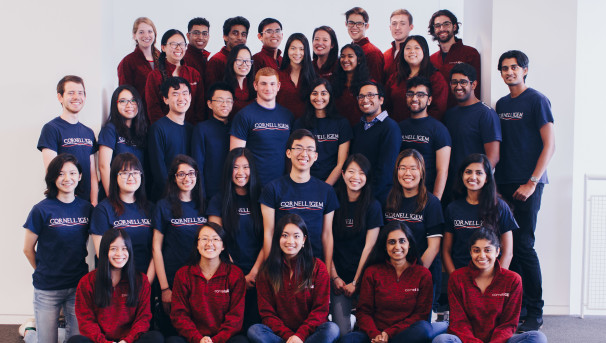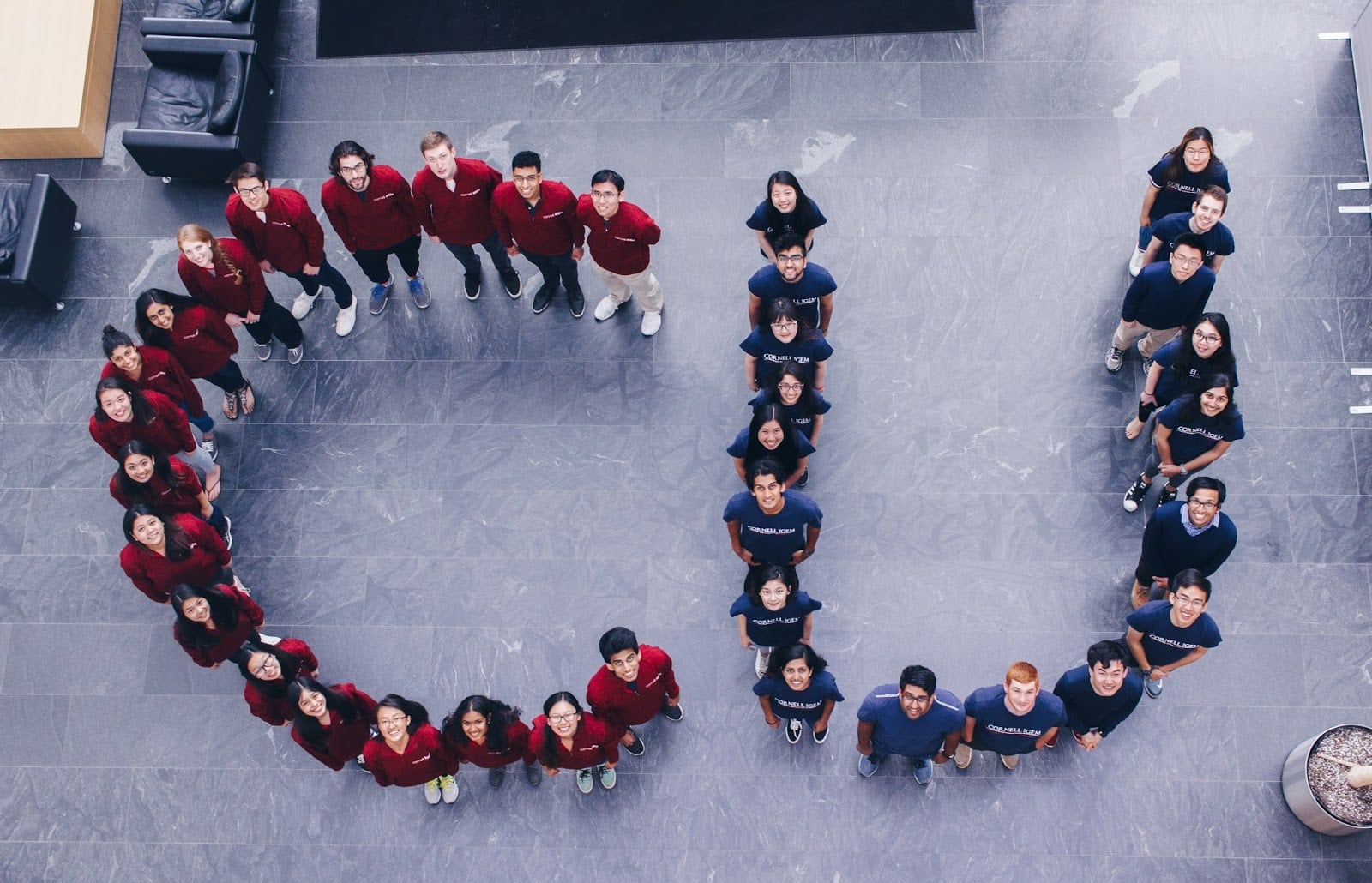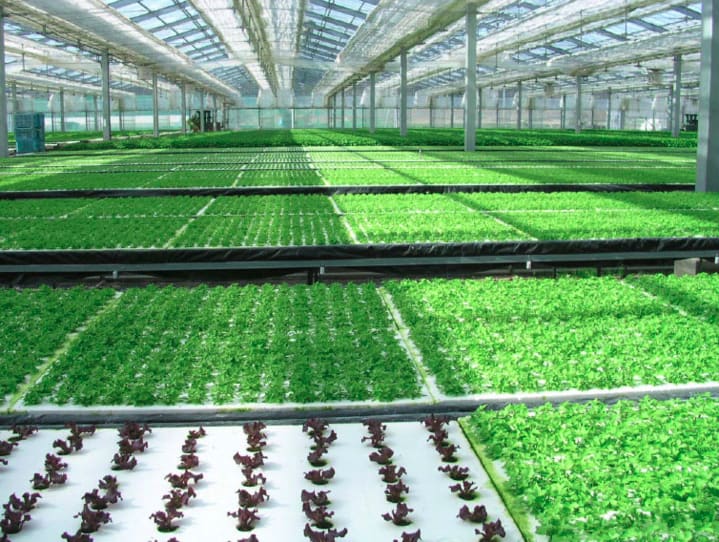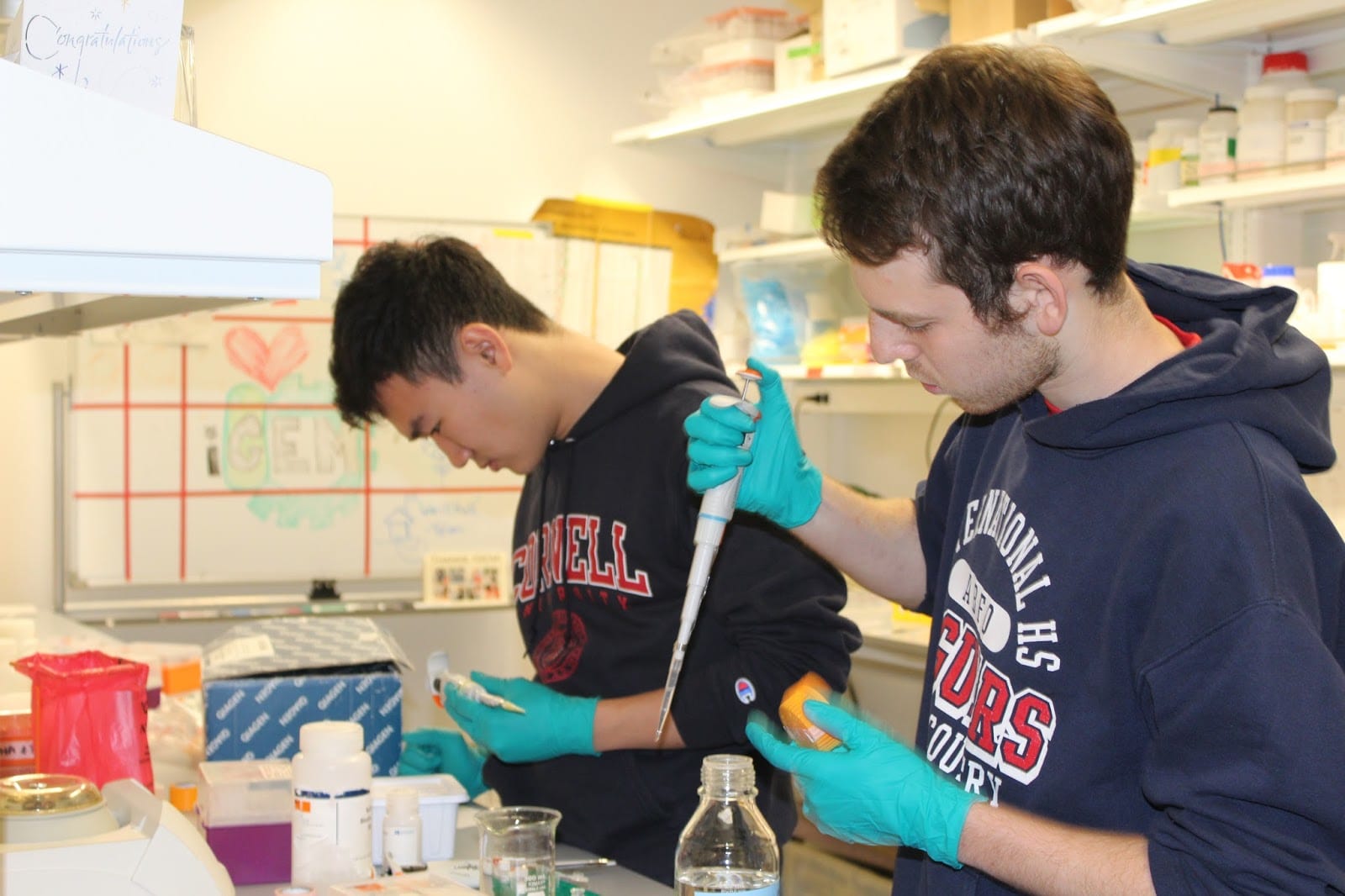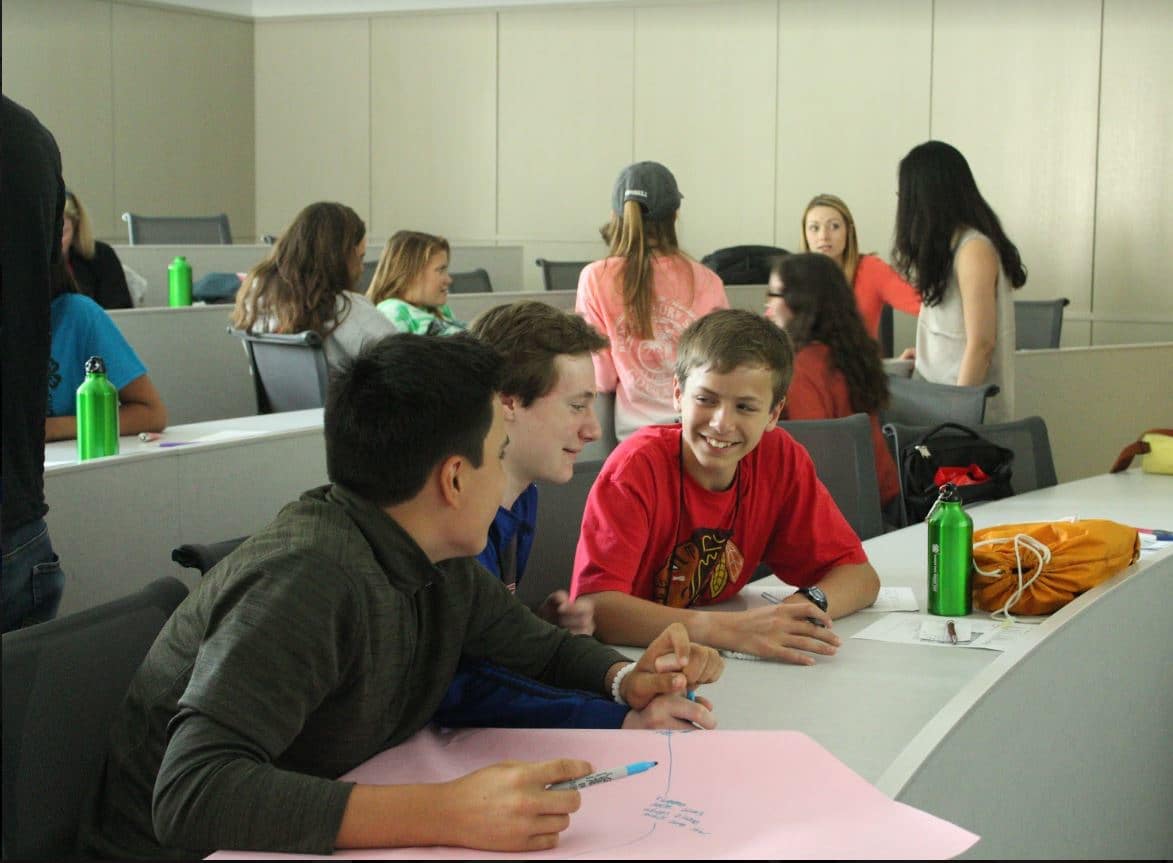Cornell iGEM: Engineering Sustainability
Cornell University's Genetically Engineered Machines Team
Cornell iGEM is an international award-winning engineering project team composed of 39 students drawn from various disciplines and levels of expertise across the university. The team’s mission is to design and develop a novel genetically modified platform, using the principles of synthetic biology, to compete at the world’s premier synthetic biology competition - international Genetically Engineered Machines (iGEM). Past projects include developing a biological filtration device using bacteria engineered to remove heavy metals from contaminated waters, a “BioFactory” for the cell-free synthesis of complex biomolecules, and a comprehensive treatment for bacterial coldwater disease in aquaculture by engineering a novel drug delivery system through fish tags. Last year, with the help of crowdfunding, we bioengineered a bacteriocin that could combat bovine mastitis and created a milk shell that allowed dairy farmers to easily prevent and monitor the development of the disease. With your help in the past, we were able to take home several awards: Best Supporting Entrepreneurship, Best Undergrad Environmental Project, Best Applied Design, and a Gold Medal. Last year, we were nominated for the Best Integrated Practices award, which is given to the top 5 out of 300 teams at the competition. We believe that synthetic biology and the ability to engineer life itself can offer breakthrough answers to the many needs of industry, the environment, and our national and global economy.
This Year’s Project
Our project this year involves the creation of a toolkit for the analysis of redox state. As new research continues to suggest, reactive oxygen species may play a huge role in a plethora of processes that we had never previously considered, ranging from tumor angiogenesis to plant growth and even aging. By coupling a redox sensitive fluorescent protein (rxRFP - Tsa2) to a spectrometric receiver, we are working to create a bio-sensing system that offers increased versatility to conventional probes, as well as potential for greater sensitivity. We even hope to be able to expand upon this by incorporating optogenetic expression mechanisms to automate certain responses such as the production of proteins like catalase which regulate redox state.
In order to showcase the versatility of this technology from an entrepreneurial standpoint, members of Cornell iGEM spent the summer working in the Rev startup incubator designing a system to monitor and adjust oxidative stress in hydroponic systems. The principle is that oxidative stress increases plant growth; however, it also can be detrimental to many native processes of the plant. Therefore, some happy medium exists that farmers can target if and only if an effective large scale sensing system exists to monitor their plants and track data. Thus, through the feedback of farmers themselves, we created Oxyponics, which couples fluorescent bacteria with a camera-rail system for imaging, to provide exactly the large scale blanket type sensing that conventional redox probes cannot.
Broadening Member Experience
Cornell iGEM provides undergraduates with an interest in biological research and engineering an opportunity to brainstorm, design and build their own project from start to end. The team is composed of multiple subteams including wet lab, product development, policy and practices, wiki, and business. Students are free to join multiple subteams, which allows team members to not only view each year’s project from multiple perspectives, but also to apply their skills to a diverse array of research goals. Cornell iGEM engages its members in a learning process that teaches students how to apply their academic instruction to real-world applications, uniquely preparing them for team-based projects in the biological field.
Improving our Local Community and Beyond
Our team prides itself in fostering a meaningful impact on our local and global communities by engaging with Cornell University, Tompkins County, and beyond. To do so, Cornell iGEM has visited the Ithaca Sciencenter and 4-H STEM Camps to help promote safety with regard to the controversial field of synthetic biology. In addition, we have developed a social media platform called "Humans and SynBio" in collaboration with other iGEM teams from across the world to spread awareness of synthetic biology. Last year, we had the honor to establish our presence at the New York State Fair, which is visited by around 80,000 people daily. By sponsoring Cornell iGEM, not only will you contribute to the success of the team, but also help to fund the scientific engagement of our local community.
We Need Your Help!
As an undergraduate project team, Cornell iGEM relies on outside donations and sponsorships to complete our projects and compete at annual competitions. Your generous contributions would provide us with necessary lab equipment and supplies. Our wet lab research requires materials such as primers, enzymes, and kits; just these three materials together can cost over three thousand dollars throughout the course of a single project. Cornell iGEM invites you to join us in our efforts to advance the field of synthetic biology for years to come.
Visit our website to learn more: http://igem.engineering.cornell.edu/
Connect with us!
Facebook: facebook.com/cornelligem
Instagram: instagram.com/cugem
Twitter: twitter.com/cugem
$10
Atom
A donation of $10 would allow us to purchase basic lab supplies including pipette tips, test tubes, and petri dishes that we use on the daily. Each and every contribution helps and is greatly appreciated!
$25
Amino Acid
A donation of $25 allows us to purchase a pack of 25 centrifuge tubes. We use these tubes every day in our wetlab, and they are absolutely essential to our work!
$50
Protein
A donation of $50 allows us to purchase the enzymes and other such lab reagents needed for synthetic biology research. All our reactions require enzymes, so they are very important!
$75
DNA
A donation of $75 would help us greatly to purchase DNA sequencing tests, synthesize genes, and obtain vector plasmids necessary for the molecular cloning techniques used in synthetic biology.
$100
Nucleus
With a donation of $100, we would be able to fund part of our outreach costs for the year. We are involved in several programs to expose youth in and around Ithaca to science and engineering. We believe that it is very important to invest in future scientists!

